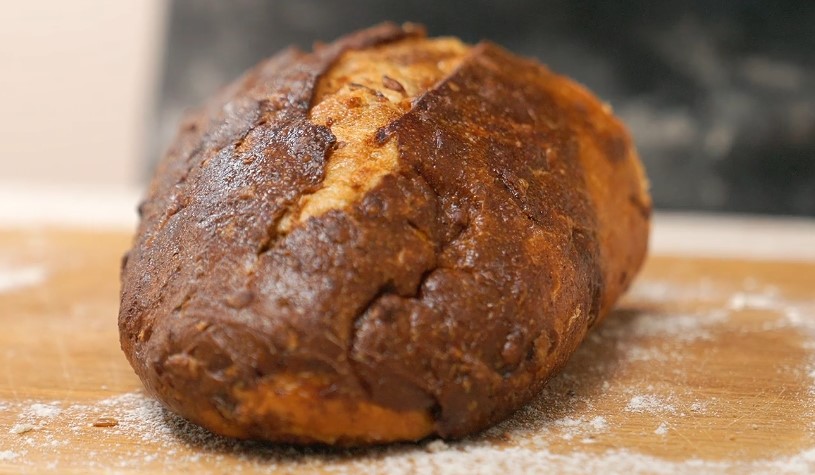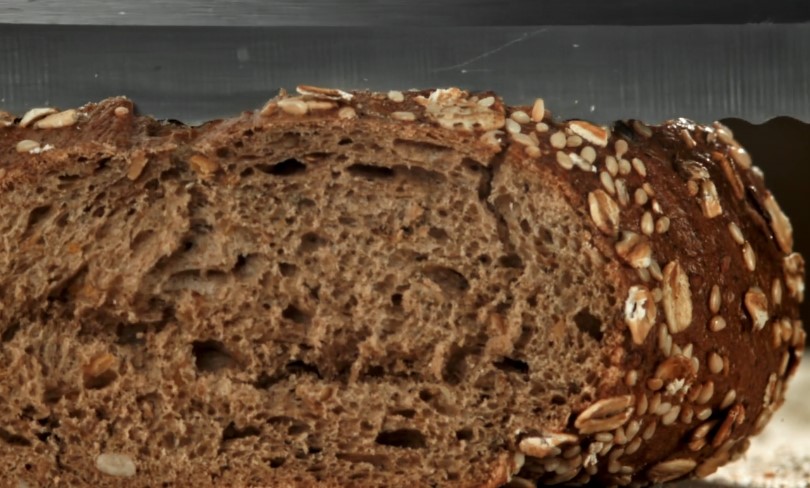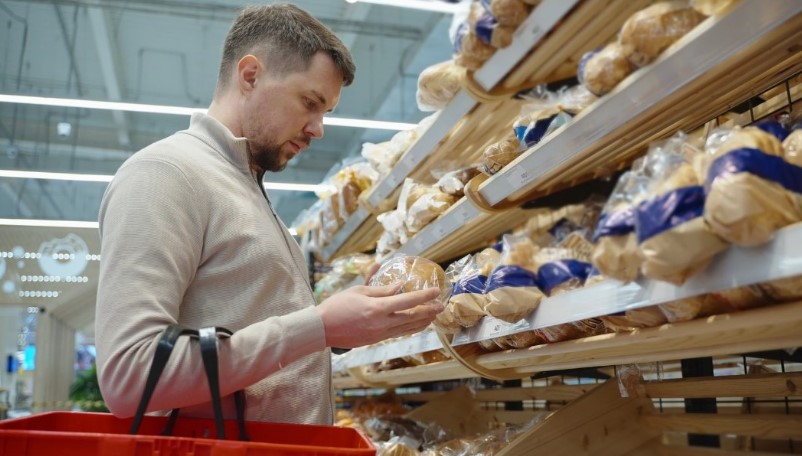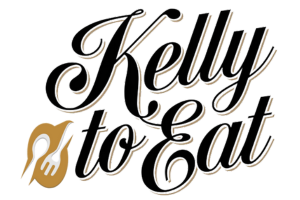Bread is one of the simplest foods in human history, yet the question of whether it is vegan does not have a simple yes or no answer.
At its most basic, bread requires only flour, water, yeast, and salt, all of which are vegan. However, many commercial and artisanal loaves contain hidden animal-derived ingredients, either for texture, flavor, or shelf life.
This means not all bread is vegan, and the only reliable way to know is by reading the ingredient label carefully or asking the baker directly.
The good news is that many traditional styles of bread are naturally plant-based, and vegan-friendly options are widely available once you know what to look for.
The Foundation of Vegan Bread
When bakers stick to the classic formula, bread is entirely plant-based. A traditional sourdough, a French baguette, or a simple pita contains nothing more than flour, water, yeast, and salt. These ingredients work together to create structure, flavor, and texture without any need for animal products.
Yeast, although sometimes misunderstood, is a fungus and therefore vegan. Salt and water are obviously free of animal connections. Flour, whether wheat, rye, spelt, or oats, provides the backbone of the loaf.
Table 1: Core Ingredients in Vegan Bread
This minimal list is why many traditional breads from older recipes are safe choices for vegans. The challenge arises with modern industrial baking, where recipes often expand to include dozens of additives.
Why Not All Bread Is Vegan

Modern breadmaking often moves beyond the simple formula, introducing ingredients that are derived from animals. Brioche, challah, sandwich rolls, and many soft packaged loaves rely on dairy and eggs to create a rich, tender crumb.
Honey is a common sweetener in whole-grain or “natural” breads, which makes them unsuitable for strict vegans.
Even more confusing are dough conditioners and preservatives like L-cysteine, which can be made from animal sources such as feathers or hair, or emulsifiers like mono- and diglycerides that may be sourced from either plants or animals.
Table 2: Non-Vegan Ingredients to Watch For
This mix of possible ingredients is why reading labels is so important. A loaf that looks wholesome and plant-based on the outside may have been softened with milk powder or glazed with egg wash just before baking.
Which Bread Types Are Most Often Vegan

Certain breads, by tradition, remain closer to the original plant-based formula and are usually safe for vegans. A rustic sourdough made from starter, flour, and salt rarely contains dairy.
Pita and ciabatta are also typically vegan, as is the French baguette, which uses only flour, water, yeast, and salt. Sprouted grain breads such as Ezekiel are also widely available in vegan-friendly forms, though honey sometimes appears in specific recipes.
On the other hand, enriched breads like brioche, challah, and many soft dinner rolls nearly always contain butter, eggs, or both.
Table 3: Bread Types and Their Typical Vegan Status
This makes it clear that choosing the right type of bread can dramatically increase the chances of it being vegan.
The Challenge of Packaged Bread

Supermarket bread can be especially confusing because it often contains a long list of additives. To maintain softness and extend shelf life, manufacturers rely on preservatives, conditioners, and stabilizers. The problem is that many of these are not transparent in origin. A label might list “mono- and diglycerides” without specifying whether they were plant- or animal-derived. Similarly, vitamin D fortification in enriched flour is sometimes sourced from lanolin, which comes from sheep’s wool.
Reading the label carefully is the only way to make an informed choice. The shorter the ingredient list, the safer the bread usually is. A loaf with just five or six recognizable items is much less likely to contain hidden animal products than one with a dozen chemical-sounding names.
Table 4: Label Clues That Require Extra Attention
For strict vegans, certification labels such as “Certified Vegan” or “100% Plant-Based” remove much of this uncertainty.
Brands and Reliable Options
Fortunately, many bread brands today cater to vegan customers by offering clearly labeled products. For example, Dave’s Killer Bread produces multiple vegan-friendly loaves, and Food for Life’s Ezekiel bread is widely recognized as vegan in most of its varieties. Local bakeries that produce sourdough or rustic loaves often stick to the simplest formulas, though it is always wise to confirm whether any honey or milk is included in the recipe.
Final Thoughts
The short answer is that bread can absolutely be vegan, but not all bread is. The safest strategy is to focus on styles traditionally made from basic ingredients, like sourdough, pita, ciabatta, and baguette, or to buy from brands and bakeries that clearly label their products as vegan. On the other hand, enriched breads such as brioche, challah, and many packaged sandwich loaves are almost always non-vegan due to the inclusion of milk, butter, or eggs.
Knowing what to look for on the label, whether it is hidden dairy proteins, honey, or ambiguous additives, gives vegans confidence and control over their choices. With this awareness, enjoying bread becomes simple again, free from uncertainty about what went into it.
Hi there, my name is Kelly Barlow and kellytoeat.com is my blog. Here, I write about various recipes I want to reccommend to readers.
I try to find the best possible recipes that can attract the attention of readers, and at the same time, I strive to write it in the most engaging manner possible.
When I was younger, I wanted to become a chef. Sadly, it wasn’t meant to be, but at the very least, I write about it.
